YYYYMMDD >>> BACK HOME <<< >>> SELECTED FEATURES <<< >>> INTERVIEWS <<<
[20240320]
36 MONTHS OF LOSS by DAN LIE at THE GROUND - HANOK - ART SONJE CENTER [from 20240216 to 20240512]
[Photos: Seowon Nam / Courtesy of Art Sonje Center]
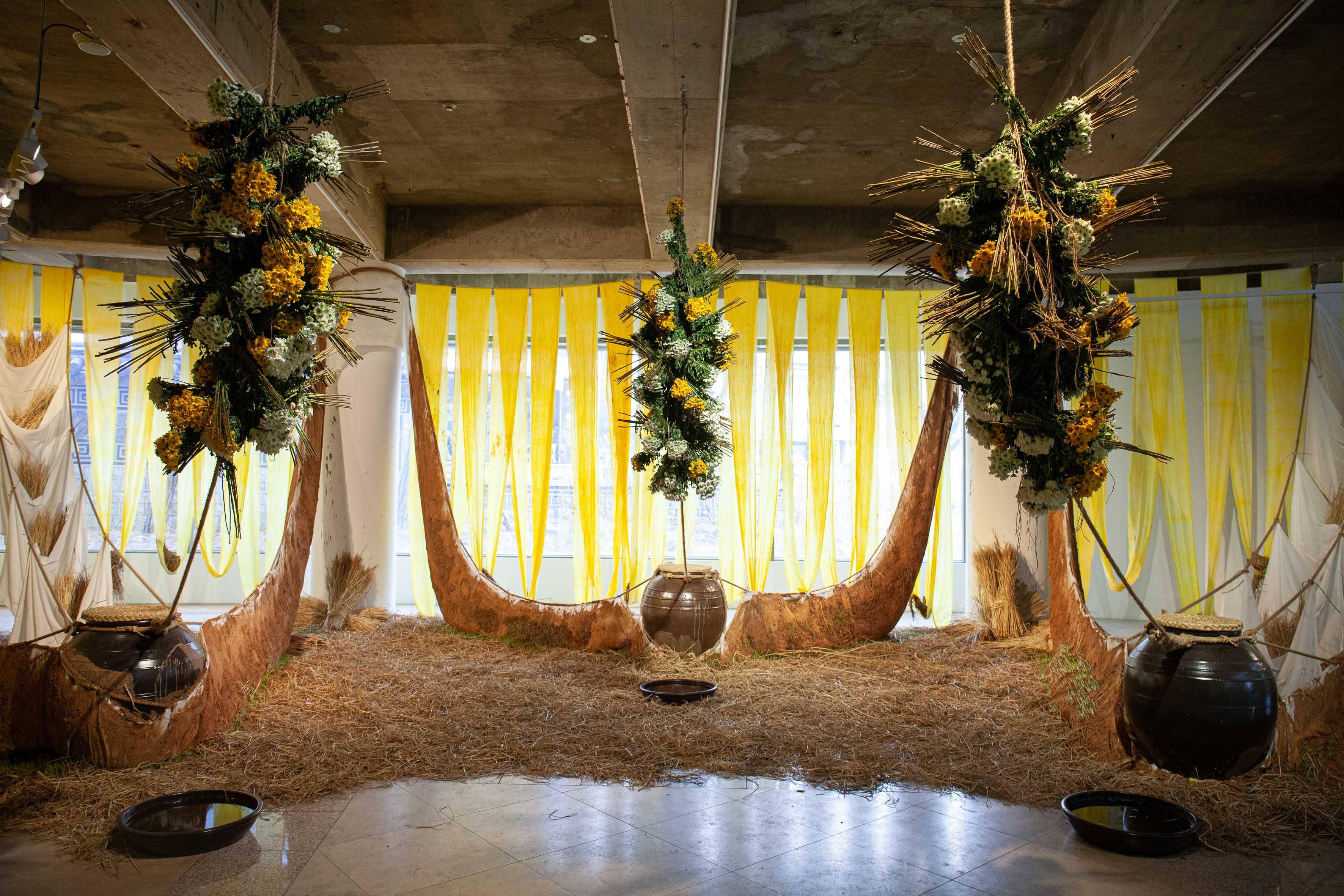
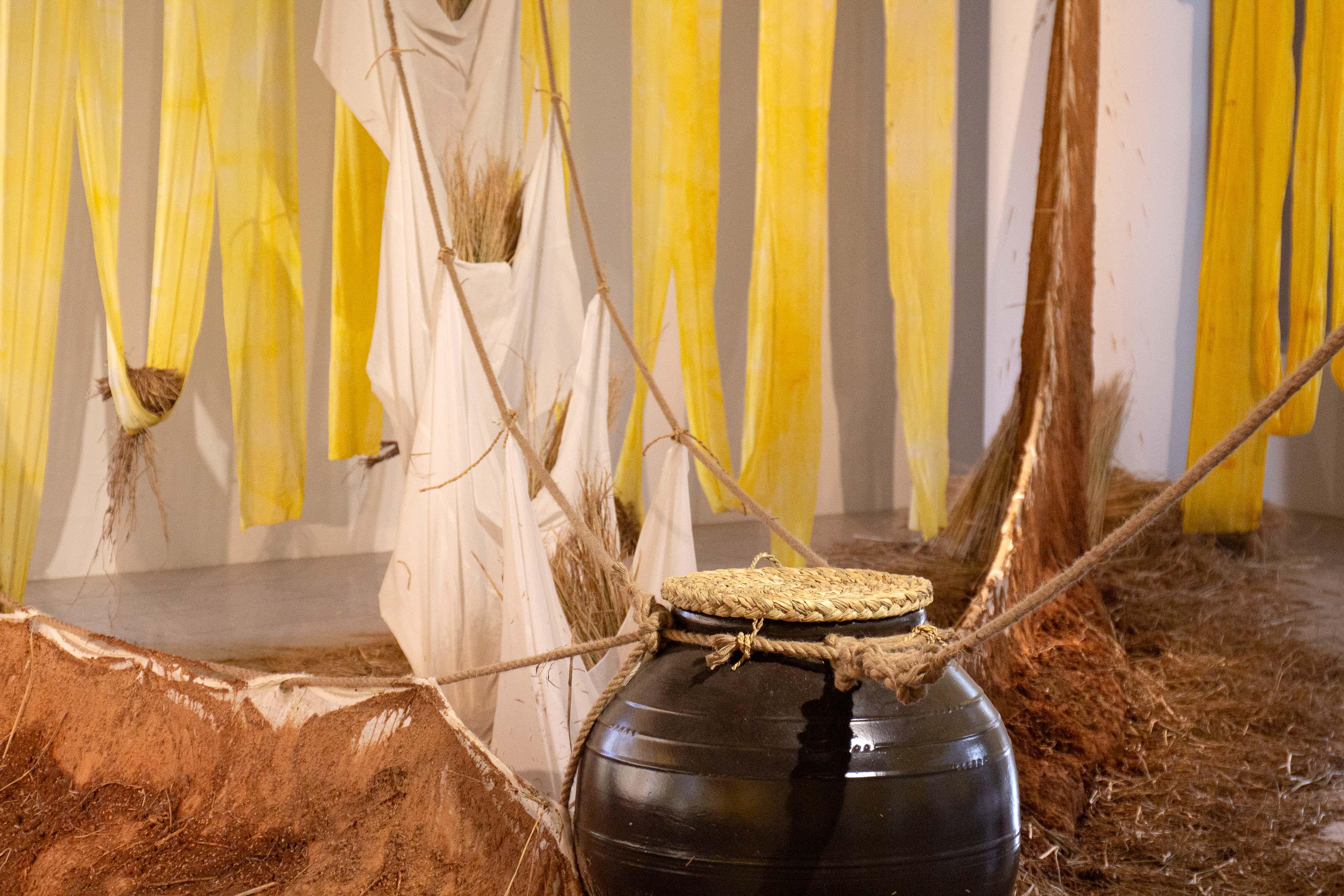
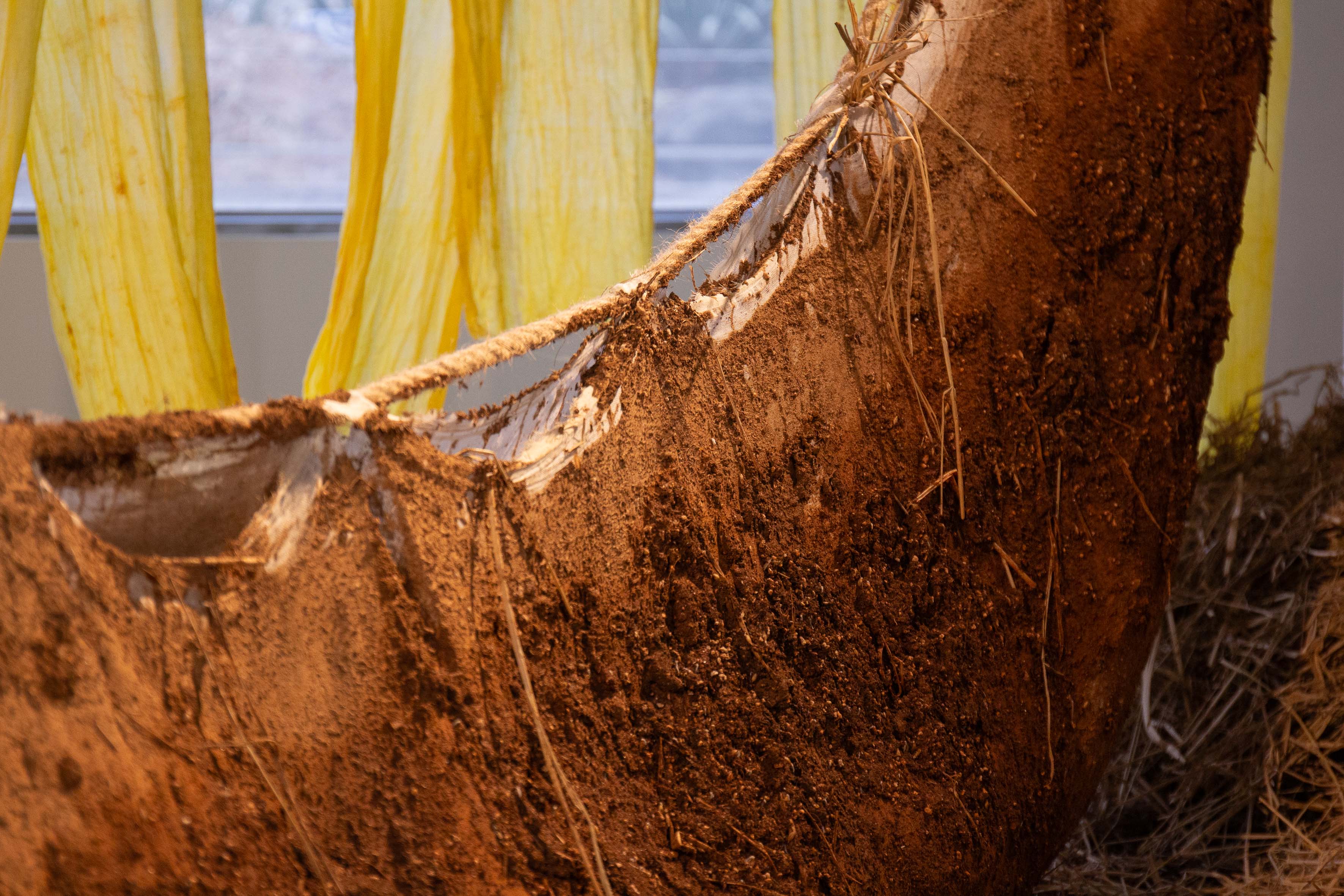
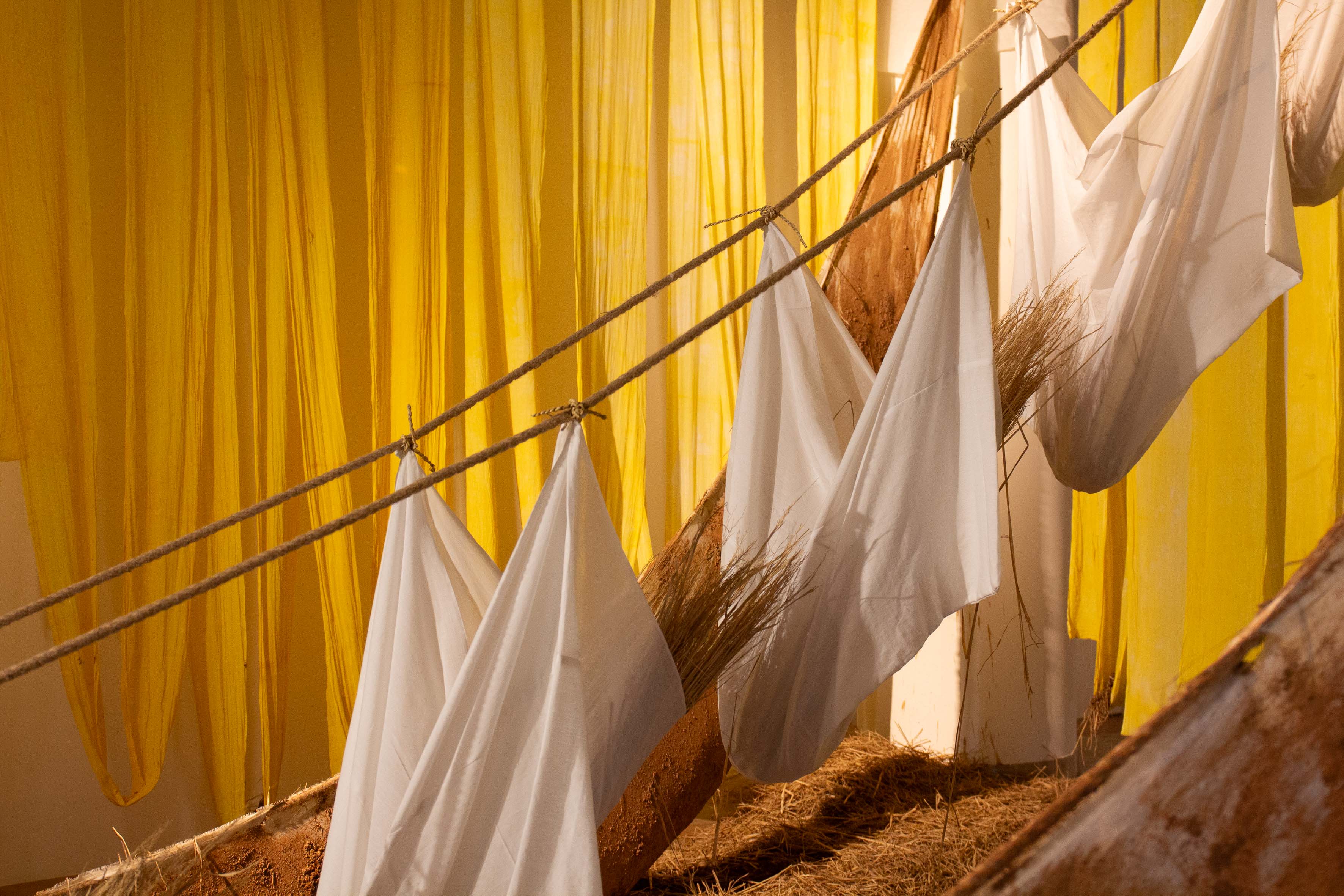
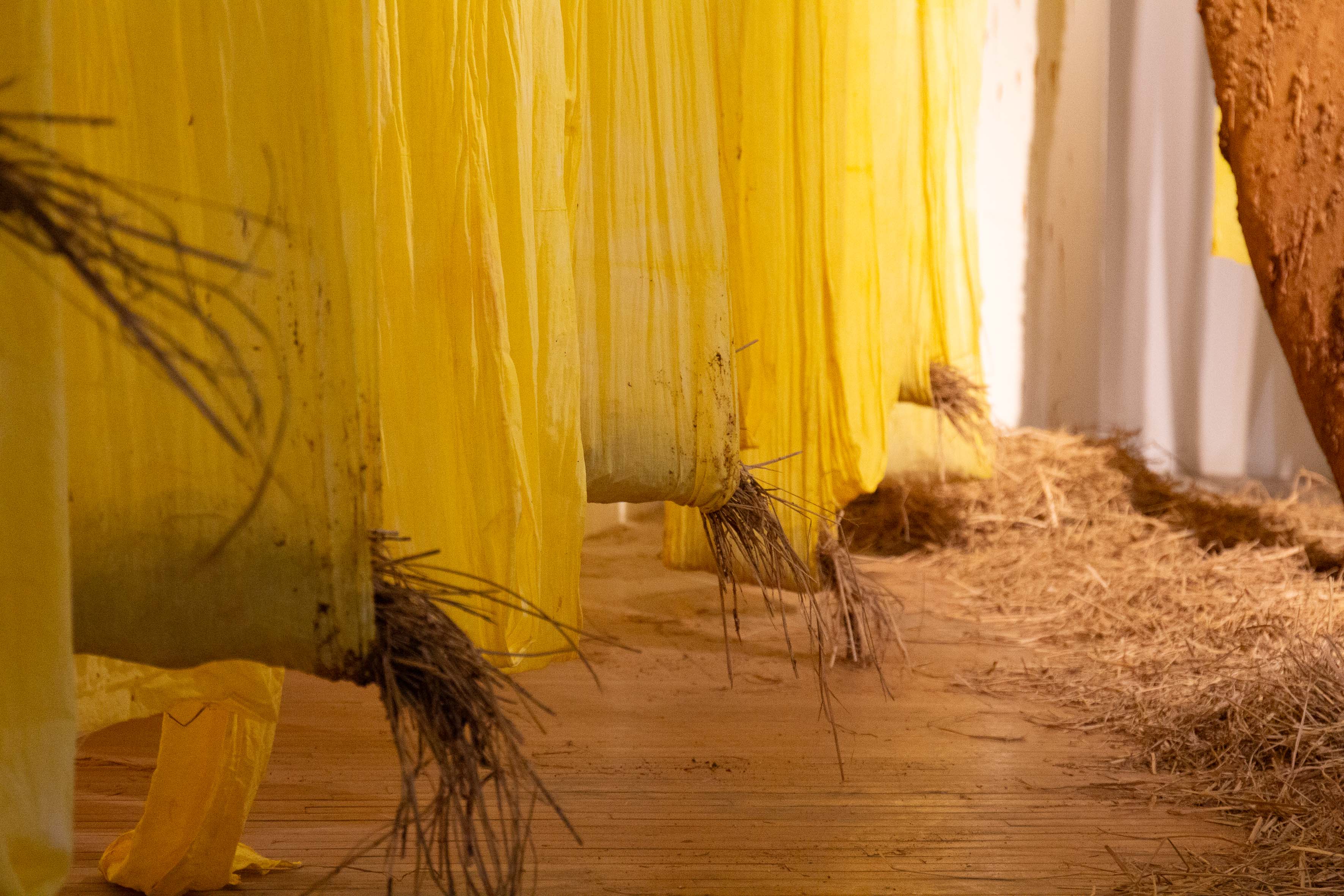
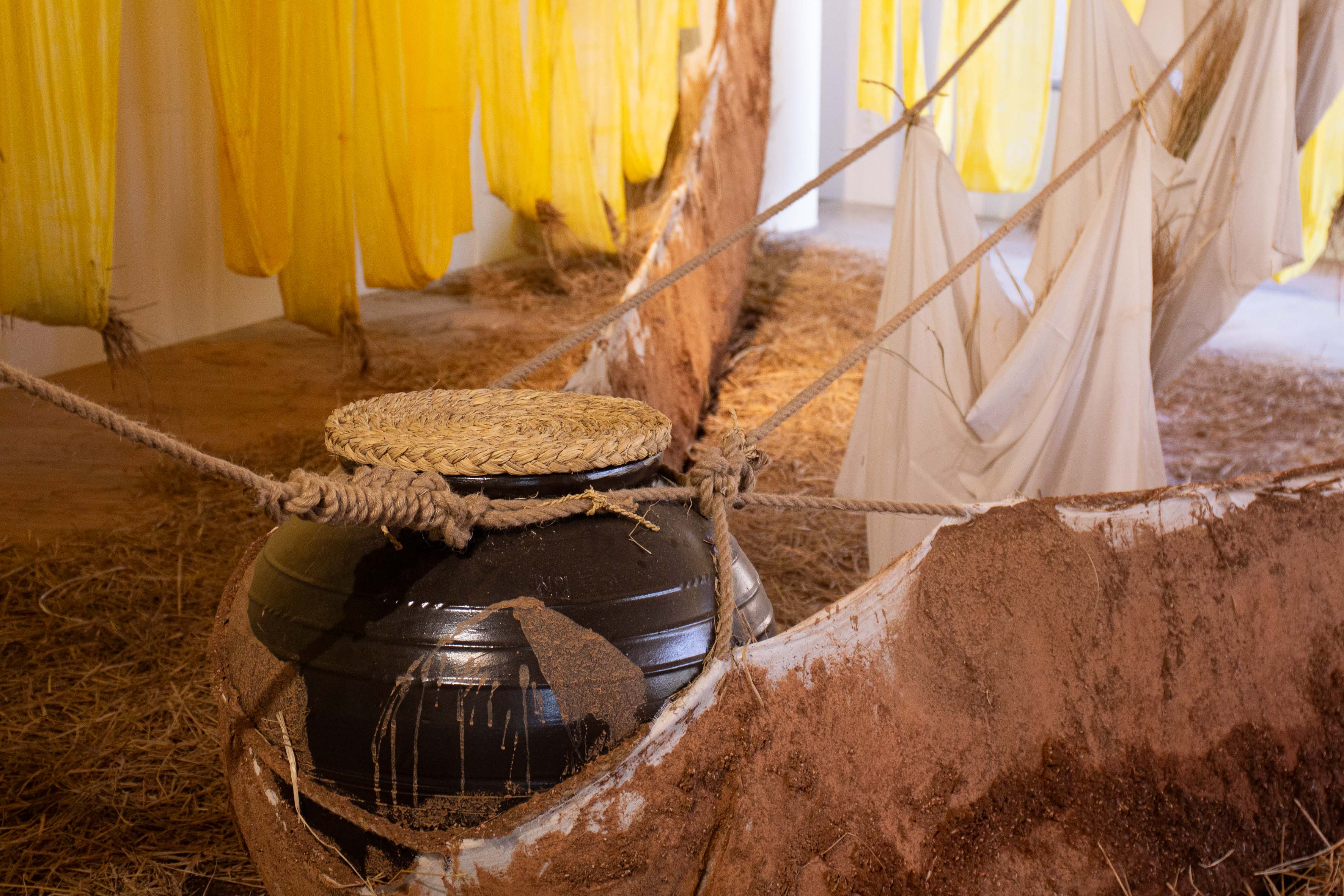

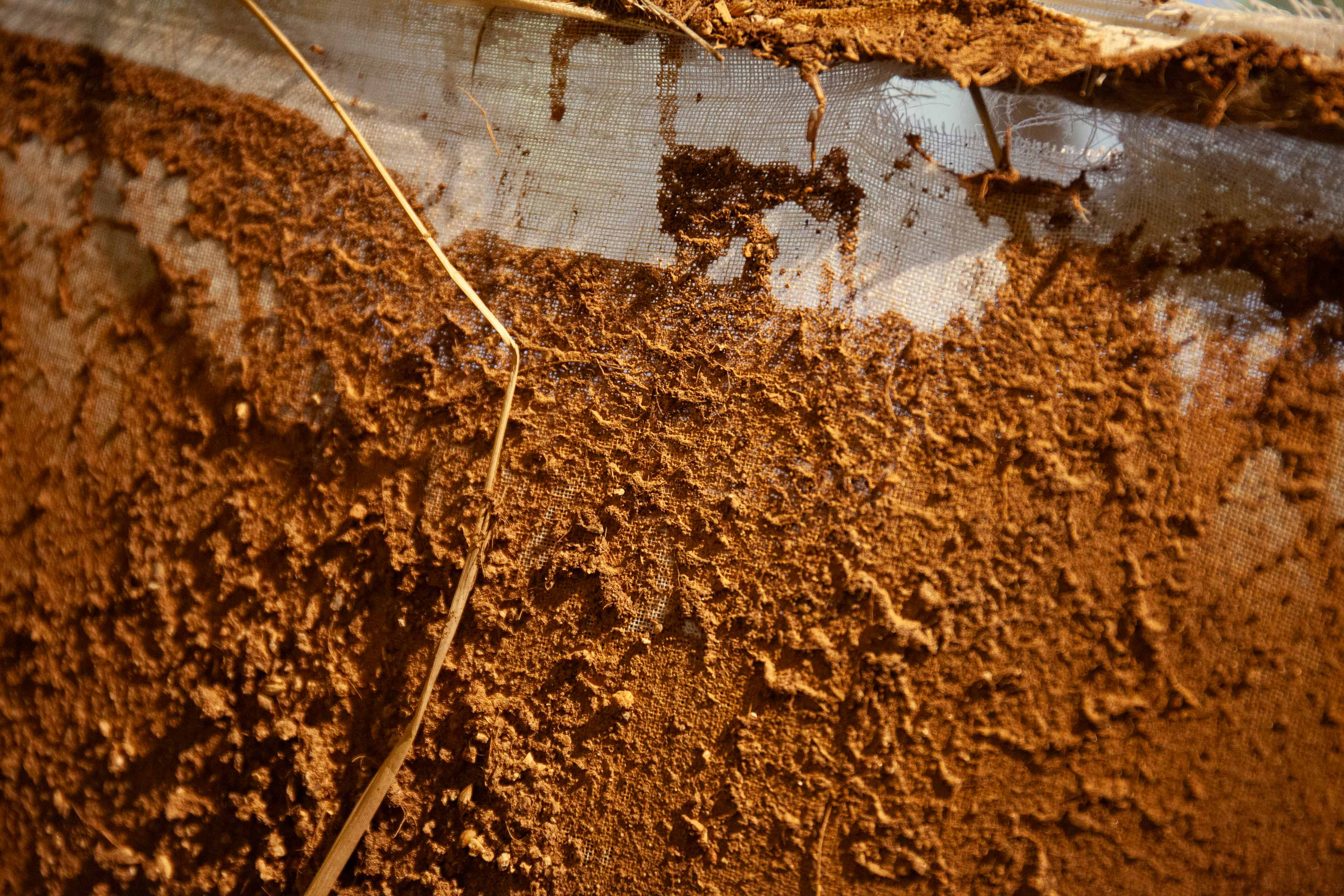

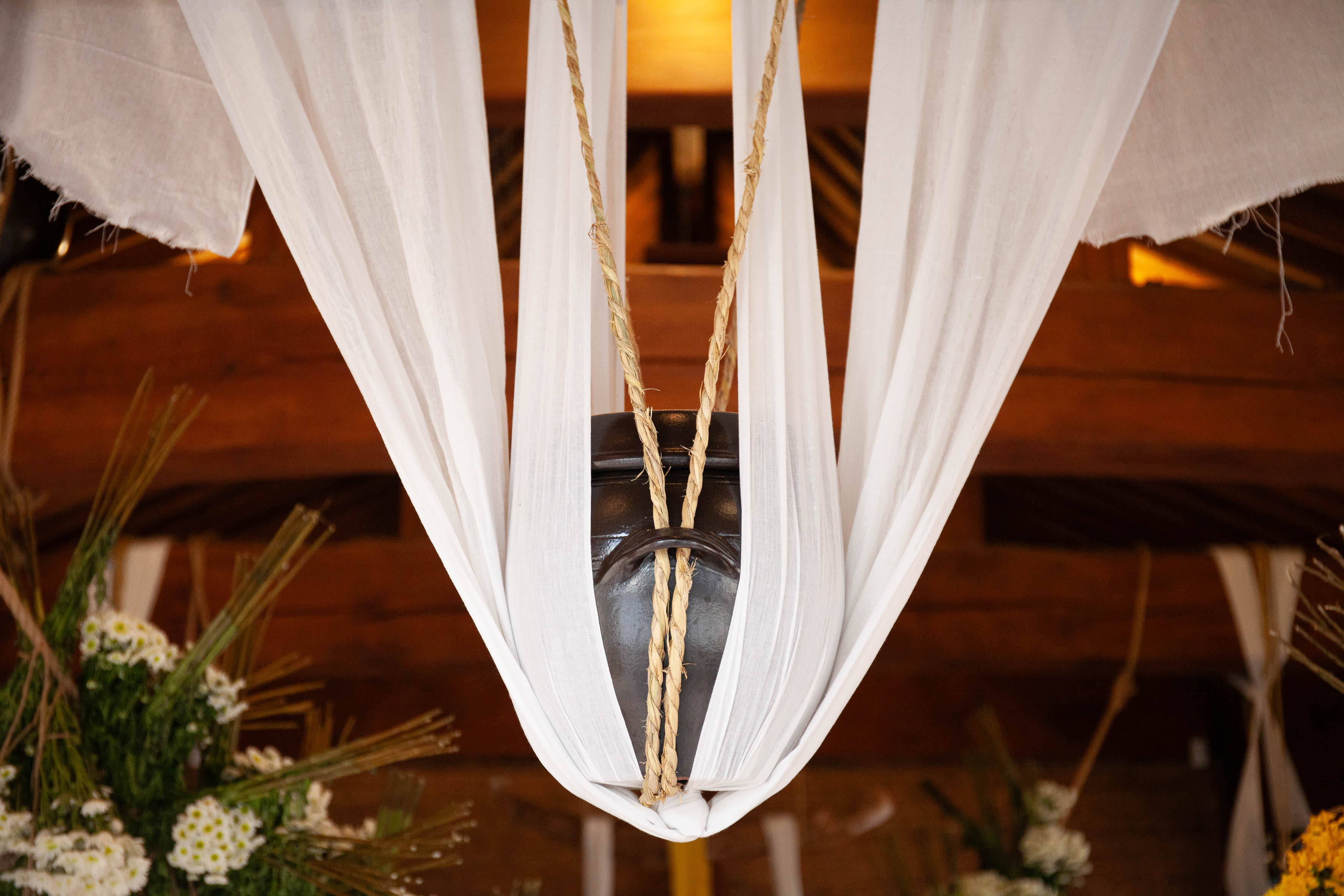
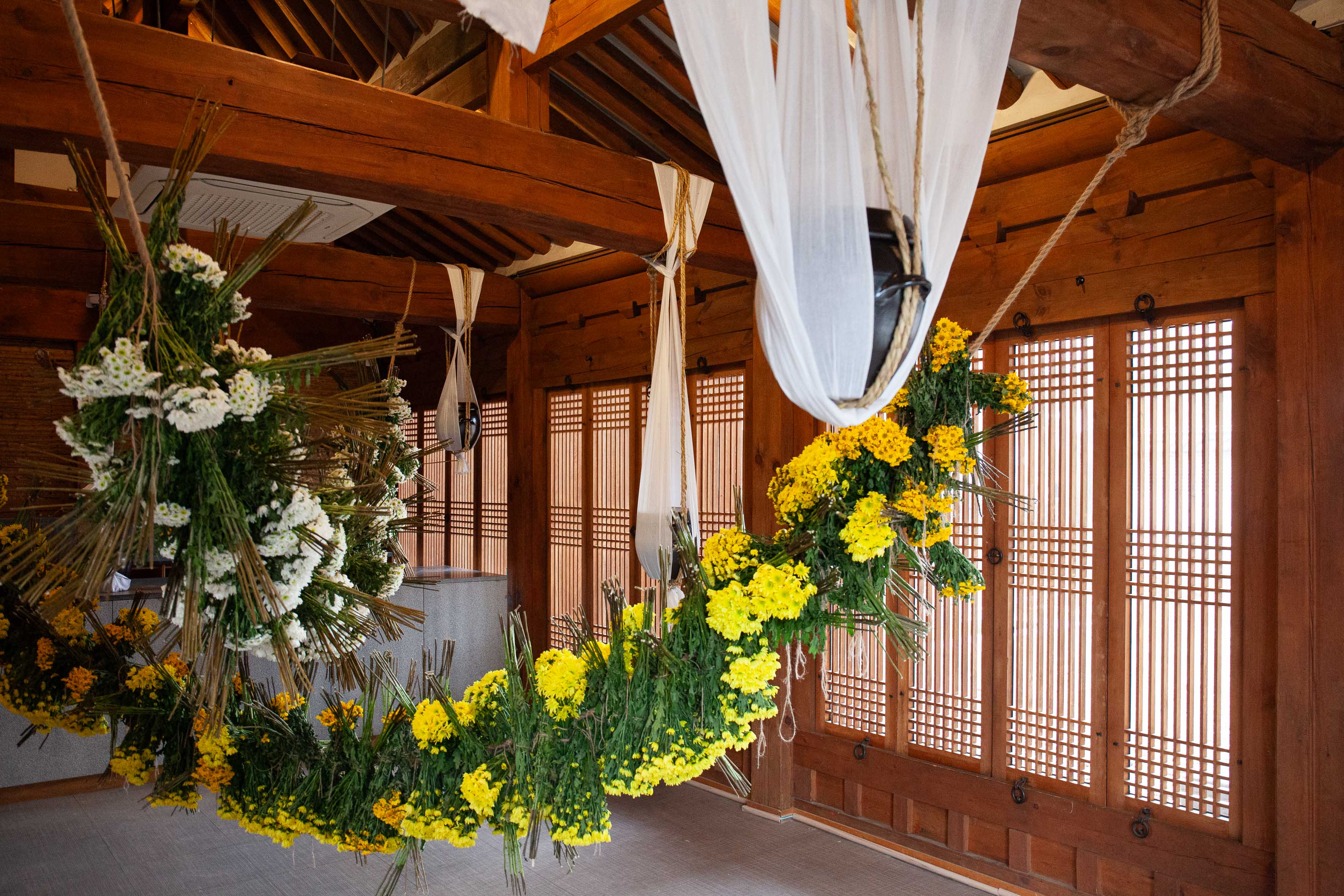

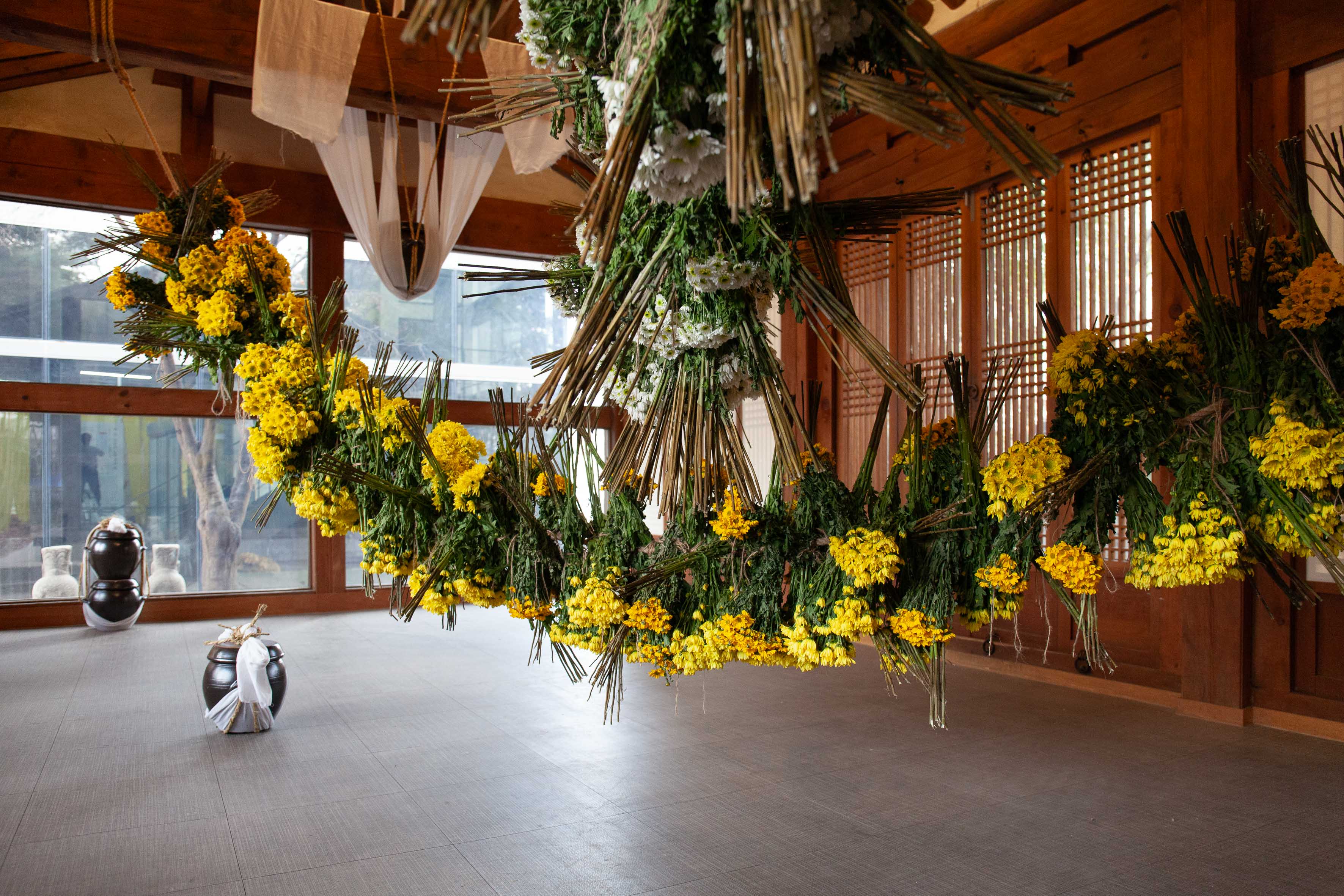


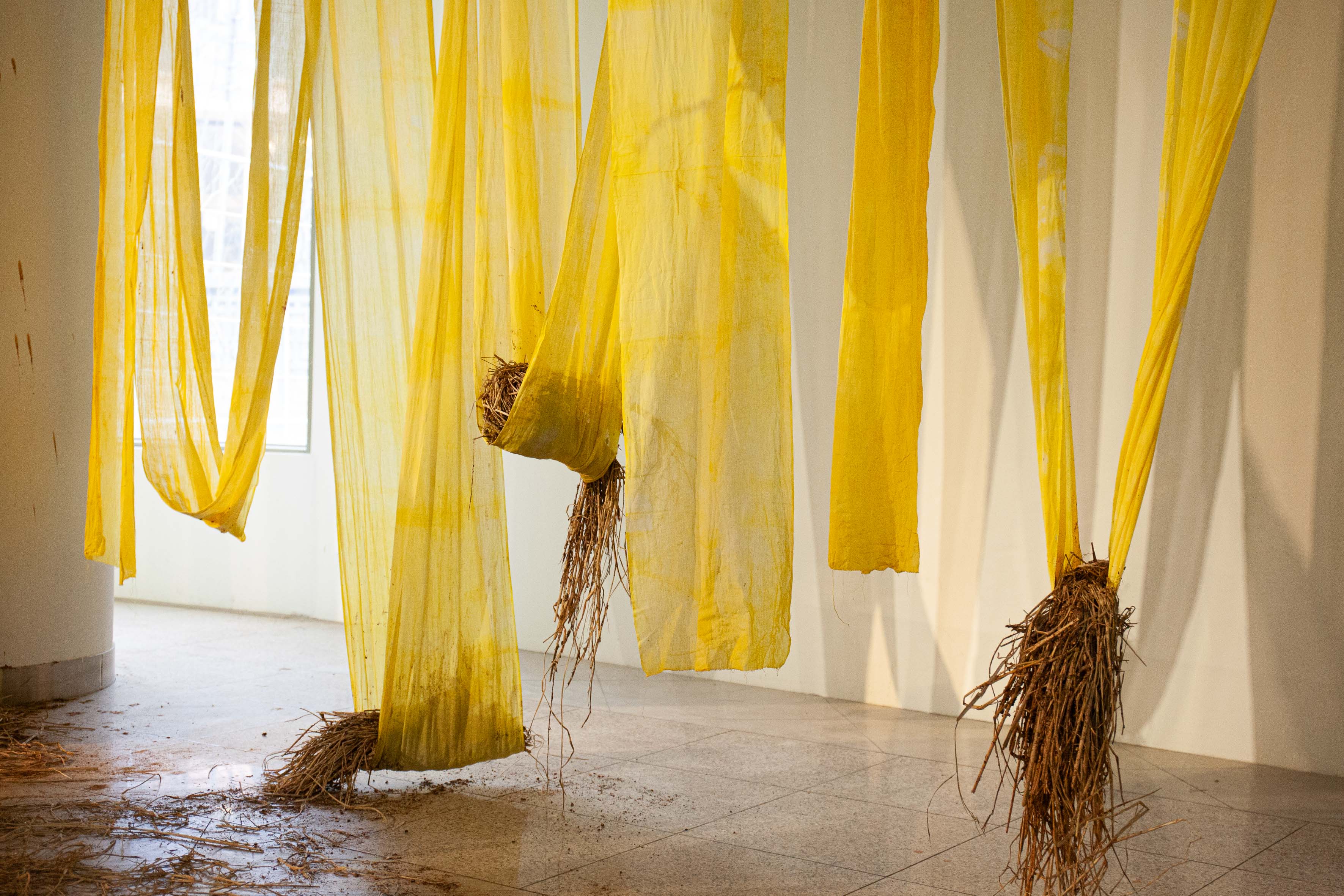
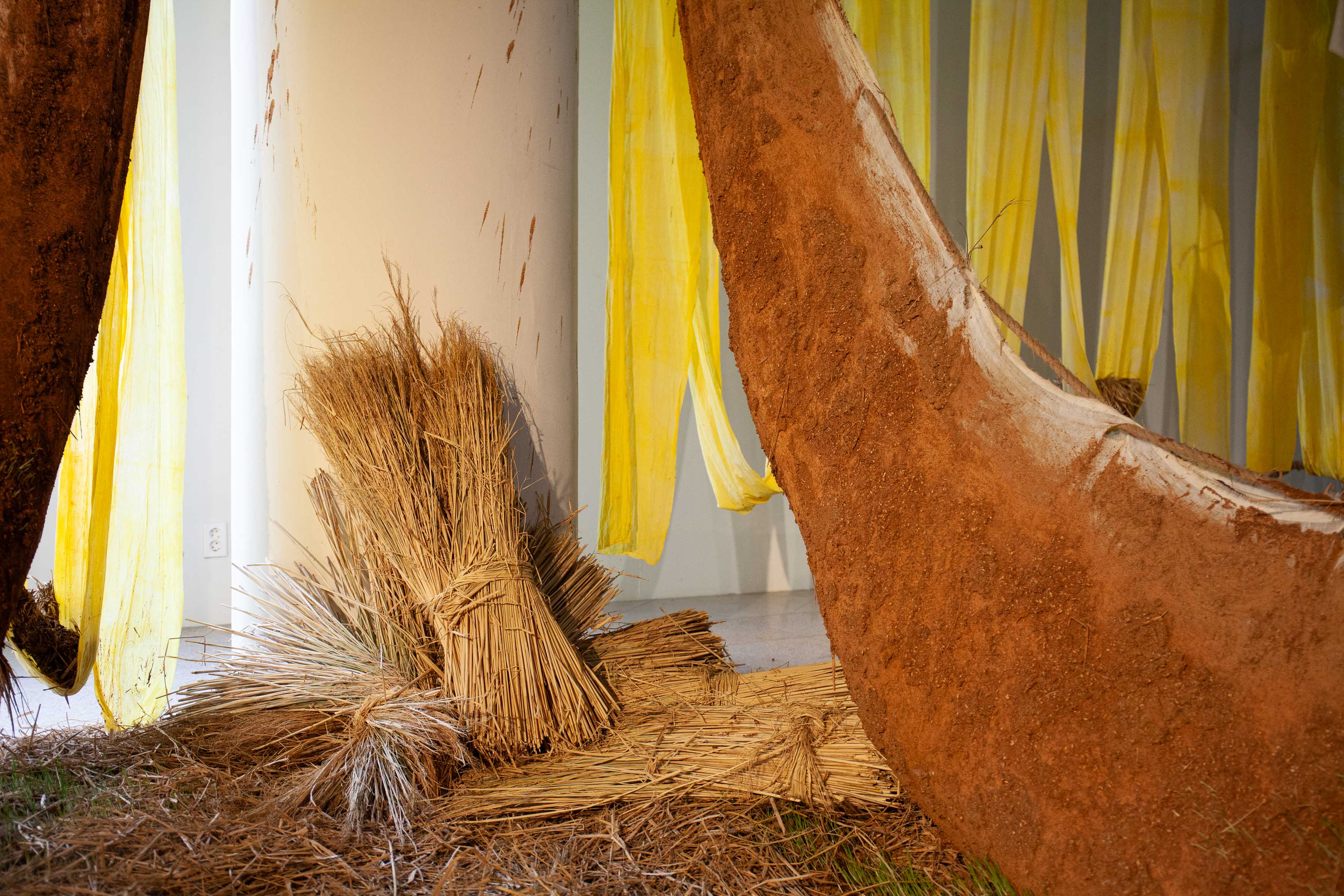
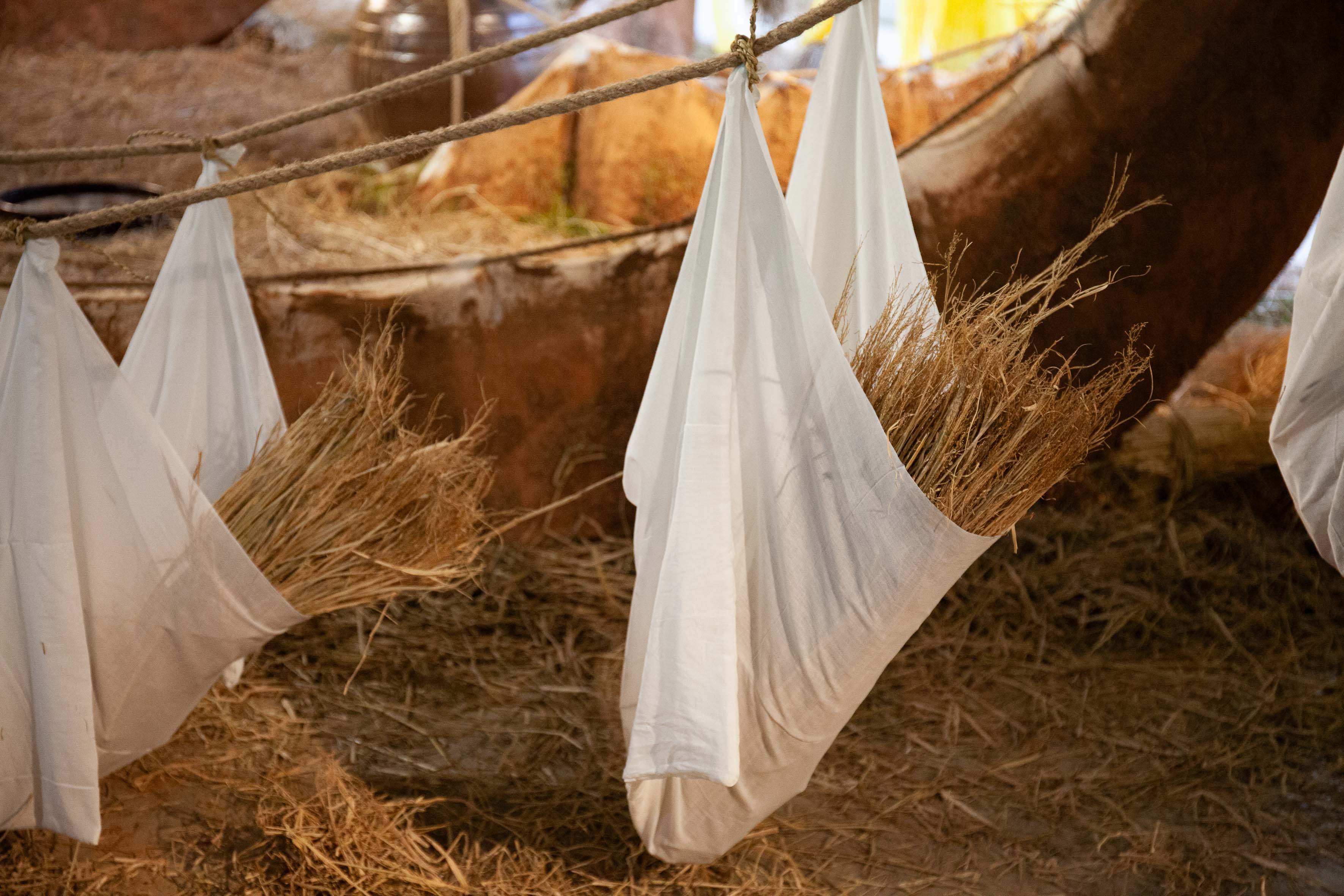
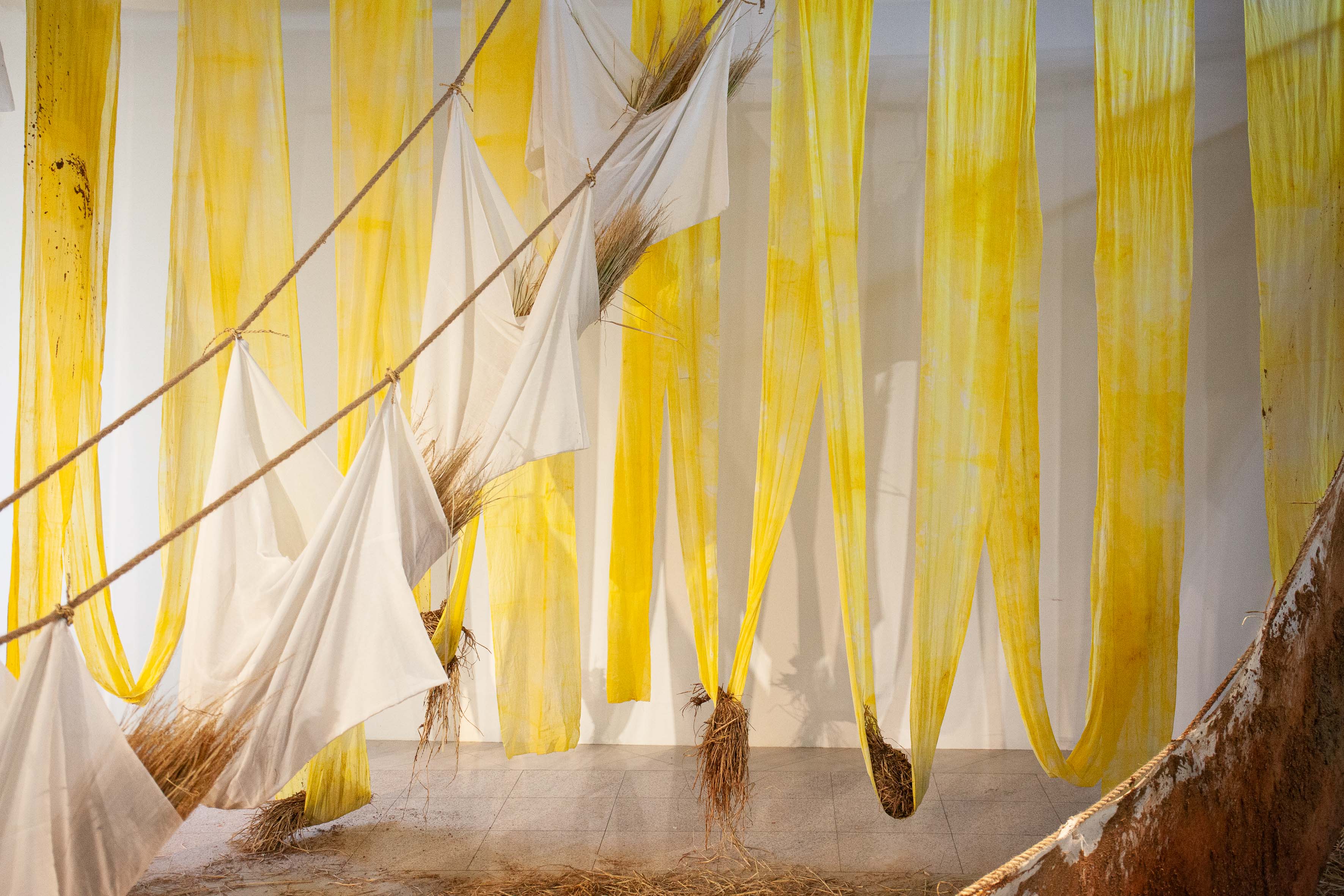

Art Sonje Center presents the first Korean solo exhibition by Dan Lie, a Berlin-based artist with an Indonesian-Brazilian background, at the Ground and Hanok. Lie has drawn attention as a rising star in the international art scene with works presented at their 2022 solo exhibition at New York’s New Museum as well as the Carnegie International, Singapore Biennale, and Bienal de São Paulo.
Lie transforms the museum’s white cube into an ecosystem where organisms cycle through birth, proliferation, and death. To achieve this, they collaborate with “other-than-humans” such as fungi, enzymes, spirits, and ancestors. The artist uses natural materials such as soil, flowers and spores to realize large scale installations, revealing specific ecosystems reacting and changing based on the exhibition environment, climate, and biological constitution of installation elements. All life forms featured in Lie’s works exist in cycles of decomposition and fermentation—of life and death. Dan Lie describes their works as a “combination of the living and the dead.”
For this exhibition, they present new works based on personal experiences and research into traditional Korean culture. The year 2024 marks the third anniversary of the death of Lie’s father. Lie reinterprets the three-year mourning period (samnyeonsang) in Korean funeral rituals, using materials such as sambe (hemp cloth), straw, and onggi (Korean earthenware) to illustrate their own methods of grieving through processes of decomposition, growth, fermentation, and annihilation. As a trans-nonbinary artist, Lie has focused on rotting and fermentation as key themes harboring the potential for transitions that transcend binary oppositions between life and death or humans and non-humans.
When entering the Ground of Art Sonje Center, fabrics dyed yellow with turmeric surround the exhibition hall, and in the middle is the ecosystem created by Lie. The large-scale installation work, which consists of heaps of soil sprouting with buds and mushrooms, hanging structures made of chrysanthemums and sambe, and onggis fermenting yeast, continuously change form and are placed within the cycle of life and death. Additionally, “other-than-humans” actors such as microorganisms, fungi, and bacteria that occur during the process of decomposition and fermentation act as collaborators that expedite this cyclical process. Furthermore, inside the Hanok located in the courtyard, another ecosystem of Lie unfolds. Influenced by the taboo ropes hung to prevent negativity in Korean traditional culture, the artist presents an installation work that descends from the ceiling using straw ropes, chrysanthemums, and onggis. The viewers can observe how this work also gradually changes over time. Lie explains, this exhibition is presented with “works that exists only at this time and space, and can never be created again.”
Observing these cycles, Lie raises questions about sympathy: can human beings look at other beings with the same respect that they accord other humans? In addition to their ongoing dialogues with “other-than-humans”, the artist also converses with mycologists, post-humanist scholars, and archeologists exploring rituals of grief. “Other-than-humans” that are not noticed in an anthropocentric world represent a focal point in their work. The fermentation of makgeolli (a form of rice wine) in onggi vessels in the exhibition hall offer a form of olfactory stimulation to viewers, while sambe and other motifs drawn from traditional Korean funeral culture afford a special sensory experience as they are presented through installation works of enormous scale. Dan Lie’s multisensory, unreproducible installations continue to change and evolve with their exhibition environment. In that sense, this particular ecosystem assumes its own unique vitality.
Dan Lie (b. 1988), having roots in both Indonesia and Brazil and currently residing in Berlin, is an artist whose work finds its roots in the realms of change and transition. Their artistic vision celebrates the interconnectedness within ecosystems and the natural cycles of seamless transformation, seeking to decenter the dominance of human subjectivity. Through collaborations with ‘other-than-humans’—from bacteria and fungi to plants, animals, minerals, spirits, and ancestors—Lie crafts site-specific projects grounded in particular moments and spaces. Their artistic ecosystem serves to bring attention to the intricate coexistence among various life forms, and on processes of alteration, decay, and evolution. It’s an acknowledgment of the collective and continual engagement with the rhythms of life, death, and decomposition.
Dan Lie has had solo exhibitions at New Museum, New York, USA (2022); Künstlerhaus Bethanien, Berlin, Germany(2022), Casa do Povo, São Paulo, Brazil (2019), etc. Their work has been included in group exhibitions including the 35th São Paulo Biennale, São Paulo, Brazil (2023), The 58th Carnegie International, Carnegie Museum of Art, Pittsburgh, USA(2022) and Geneva Biennale – Sculpture Garden, Geneva, Switzerland(2022).
Curated by Sunjung Kim (Art Director, Art Sonje Center) and Jina Kim (Project Director, Space for Contemporary Art).
[Text: Art Sonje Center]
©YYYYMMDD All content and design by Daniela Grabosch + Ricardo Almeida Roque unless otherwise stated. Images, Videos and Texts can only be used under permission of the author(s).